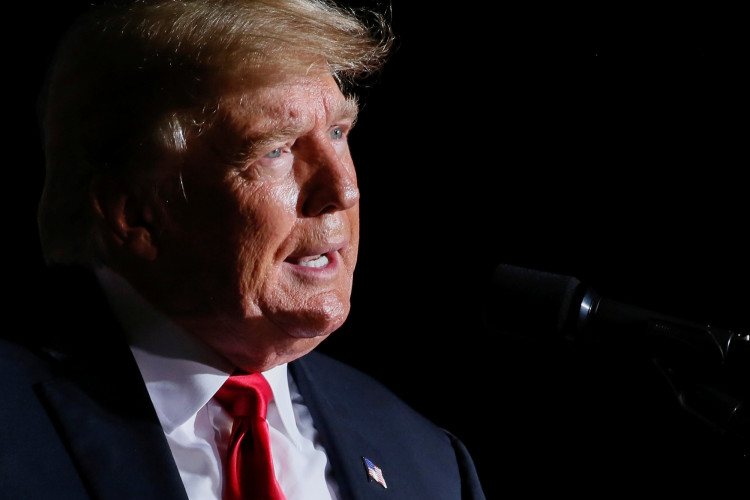Former President Donald Trump's recent comments on Haitian migrants in Charleroi, Pennsylvania, have sparked a fierce debate in the small industrial borough, with residents and local officials pushing back against claims that the influx of migrants has led to rising crime and deteriorating living conditions. Trump's remarks, made during a rally in Indiana, Pennsylvania, targeted the Haitian population in Charleroi, which he said had grown by "2,000 percent" under the Biden administration, contributing to a "flood of illegal aliens" and "massive crime."
The borough of Charleroi, with a population of just over 4,000, has seen an increase in migrants, but Trump's portrayal of the situation has been met with criticism. Local officials, including Charleroi Borough Manager Joe Manning, have dismissed Trump's claims as exaggerated. "The [Haitian] population is not a drain on our resources. They don't cause problems-nothing at all like what has been portrayed," Manning said in an interview with KDKA, a Pittsburgh-based radio station.
Trump's remarks followed similar statements he made earlier this year about the Haitian migrant community in Springfield, Ohio, where he falsely claimed that migrants had been eating pets. Although debunked, the rhetoric has resonated with some of his supporters. During the rally, a Charleroi trucker named Ernie addressed the crowd, claiming, "Over half of our town is now filled with Haitian immigrants and illegal immigrants taking our jobs away." He described the situation as a "nation-killing practice" and blamed the Biden administration for the changes.
Despite these claims, others in Charleroi have a different perspective. Sean Logue, chairman of the Washington County Republican Party, acknowledged the presence of Haitian migrants but emphasized their positive impact. "The Haitian immigrants here have a very good reputation. The problem is the federal government dumped these people in without providing any resources," Logue told NBC News' Lester Holt. Many residents, he added, have expressed concerns not about the migrants themselves, but about the lack of adequate support from the government to help them integrate into the community.
Haitian migrants have also voiced their frustration with Trump's portrayal of the situation. One migrant, who works as an interpreter for the local school system, told NBC, "When I came here four years ago, the town was a ghost town, and now we've got people working and paying taxes." The interpreter's sentiments were echoed by other Haitian residents who have found employment and settled into the community, contributing to the local economy.
Charleroi has faced challenges as the migrant population grows, particularly in the local school district, which has allocated $400,000 to hire English Language Learner teachers and interpreters to meet the needs of Haitian students. Despite these adjustments, borough officials and community leaders maintain that the influx of migrants has not caused the widespread disruption Trump describes.
Pennsylvania State Senator Camera Bartolotta, a Republican, also pushed back against Trump's claims, calling the situation in Charleroi "completely different" from other states where Haitian migrants were relocated under the Biden administration's policies. Bartolotta emphasized that many of the Haitian residents in Charleroi have been living there for several years, settling into the community and contributing positively. "Many of the Haitians in Charleroi have been here for two or three years already," she said, countering Trump's narrative of a sudden migrant influx.
The former president's rhetoric around immigration has been a key part of his political strategy, particularly as he campaigns for a return to the White House in 2024. Trump's running mate, Ohio Senator J.D. Vance, has echoed these sentiments, recently claiming that Haitian migrants in the U.S. remain illegal, despite many being here legally under the Biden administration's Humanitarian Parole Program. This program allows migrants from countries such as Haiti, Venezuela, and Cuba to temporarily remain in the U.S. under specific conditions, such as having a U.S. sponsor and passing background checks.
Charleroi is not the first town to be thrust into the spotlight over immigration issues during Trump's rallies. Earlier this year, Springfield, Ohio, became a focal point after Trump and Vance claimed that Haitian migrants were responsible for stealing and eating pets in the town's parks-allegations that local authorities later debunked. Despite this, the narrative has continued to fuel anti-immigration sentiment among some of Trump's supporters.
At his rally in Indiana, Pennsylvania, Trump asked the crowd if Charleroi had changed, prompting responses of "It's disgusting" and "They're everywhere" from attendees. These sentiments reflect a growing divide within some small communities over immigration, as the debate over how to handle the influx of migrants remains a contentious issue in American politics.






